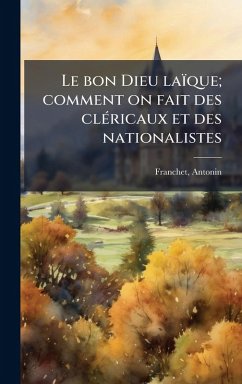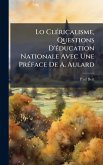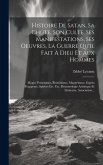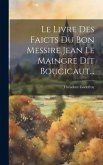"Le bon Dieu laïque; comment on fait des cléricaux et des nationalistes" by Antonin Franchet, published in 1903, offers a critical examination of clericalism and nationalism in France. This historical work delves into the socio-political climate of the time, exploring the factors that contributed to the rise of these ideologies. Franchet's analysis provides insights into the complex interplay between religion, politics, and national identity in early 20th-century France. This book is valuable for those studying French history, political science, and the history of ideas. This work has been selected by scholars as being culturally important, and is part of the knowledge base of civilization as we know it. This work was reproduced from the original artifact, and remains as true to the original work as possible. Therefore, you will see the original copyright references, library stamps (as most of these works have been housed in our most important libraries around the world), and other notations in the work. This work is in the public domain in the United States of America, and possibly other nations. Within the United States, you may freely copy and distribute this work, as no entity (individual or corporate) has a copyright on the body of the work. As a reproduction of a historical artifact, this work may contain missing or blurred pages, poor pictures, errant marks, etc. Scholars believe, and we concur, that this work is important enough to be preserved, reproduced, and made generally available to the public. We appreciate your support of the preservation process, and thank you for being an important part of keeping this knowledge alive and relevant.
Bitte wählen Sie Ihr Anliegen aus.
Rechnungen
Retourenschein anfordern
Bestellstatus
Storno








